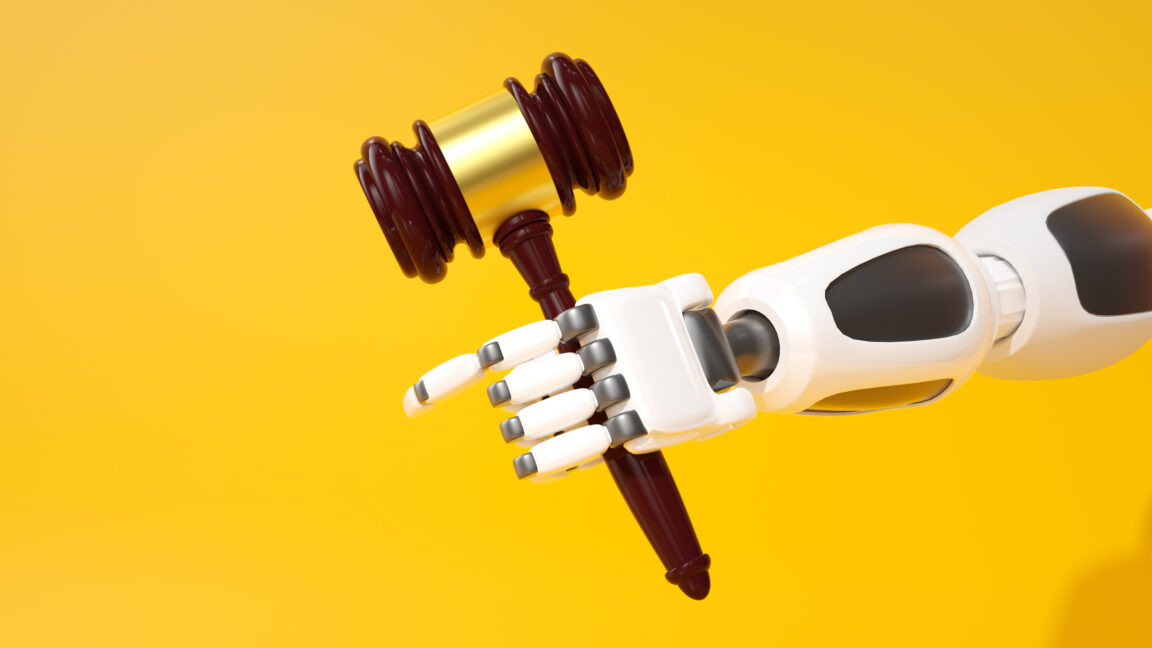全部新闻

AI初创公司Decagon在谈判中以15亿美元的估值筹集1亿美元
2025-05-02 22:47:09
Decagon是一家专注于建立客户服务代理商的AI初创公司,正在讨论以15亿美元的估值筹集1亿美元。这一轮由安德烈森·霍洛维茨(Andreessen Horowitz)领导,并与现有投资者一起参加。DeCagon的技术包括聊天机器人,这些聊天机器人可以自主处理诸如回答产品问题和处理概念和Duolingo公司的退款等任务。此前,该公司不到一年前以6.5亿美元的估值筹集了6500万美元,如果这一轮收盘,总资金达到了2亿美元。Decagon的联合创始人是Jesse Zhang和Ashwin Sreenivas,他们参加了年轻人参加奥运会比赛。
Decagon是一家专注于建立客户服务代理商的AI初创公司,正在讨论以15亿美元的估值筹集1亿美元。这一轮由安德烈森·霍洛维茨(Andreessen Horowitz)领导,并与现有投资者一起参加。DeCagon的技术包括聊天机器人,这些聊天机器人可以自主处理诸如回答产品问题和处理概念和Duolingo公司的退款等任务。此前,该公司不到一年前以6.5亿美元的估值筹集了6500万美元,如果这一轮收盘,总资金达到了2亿美元。Decagon的联合创始人是Jesse Zhang和Ashwin Sreenivas,他们参加了年轻人参加奥运会比赛。

机器学习工程师,专家-Technical.ly
2025-05-02 22:36:59
Vanguard的建议财富管理技术团队正在寻找涉及技术和数据相关任务的角色的候选人。该职位需要熟练使用现代云技术,AI驱动的见解和机器学习。申请人将加入一个专注于提供创新客户体验的协作环境。Vanguard提供了广泛的好处,包括退休计划,健康保险,专业发展机会以及旨在在促进面对面合作的同时提高灵活性的混合工作模式。该公司强调平等的就业机会,并致力于通过合理的住宿来支持残疾人。
Vanguard的建议财富管理技术团队正在寻找涉及技术和数据相关任务的角色的候选人。该职位需要熟练使用现代云技术,AI驱动的见解和机器学习。申请人将加入一个专注于提供创新客户体验的协作环境。Vanguard提供了广泛的好处,包括退休计划,健康保险,专业发展机会以及旨在在促进面对面合作的同时提高灵活性的混合工作模式。该公司强调平等的就业机会,并致力于通过合理的住宿来支持残疾人。

阿里巴巴的AI Model Qwen3:一个容易幻觉的聪明的孩子 - 亚洲时报
2025-05-02 22:06:28
阿里巴巴集团(Alibaba Group)发布了QWEN3,这是一种大型语言模型,优于以前的版本,在数学证明和代码写作能力方面的一些美国同行。它包括两个型号的混合物(MOE)型号和六个密集的型号,这些模型在36万亿个代币中训练,使其前身的训练数据增加了一倍。与DeepSeek V3相比,QWEN3的部署成本和能源消耗较低。测试表明,QWEN3在LiveCodeBench V5和Aime’24基准测试中表现出色,但在复杂的推理任务中落后于Gemini2.5 Pro。由于美国出口限制,中国人工智能公司面临芯片短缺,导致他们寻求诸如国内芯片或修改的NVIDIA H20 AI芯片之类的替代方案。
阿里巴巴集团(Alibaba Group)发布了QWEN3,这是一种大型语言模型,优于以前的版本,在数学证明和代码写作能力方面的一些美国同行。它包括两个型号的混合物(MOE)型号和六个密集的型号,这些模型在36万亿个代币中训练,使其前身的训练数据增加了一倍。与DeepSeek V3相比,QWEN3的部署成本和能源消耗较低。测试表明,QWEN3在LiveCodeBench V5和Aime’24基准测试中表现出色,但在复杂的推理任务中落后于Gemini2.5 Pro。由于美国出口限制,中国人工智能公司面临芯片短缺,导致他们寻求诸如国内芯片或修改的NVIDIA H20 AI芯片之类的替代方案。

“意识程度”:一位15岁的哲学家认为AI的权利
2025-05-02 22:00:19
15岁的本杰明·秦·穆吉(Benjamin Qin Muji)赢得了中国国际哲学奥林匹克运动会审判中的排名第一,一篇文章认为,尽管人工智能由于其信息处理能力而可以思考,但由于缺乏生物体系,它不会感到痛苦。这场胜利使他有资格参加国际比赛,这反映了AI意识辩论在定义人类与先进技术的关系方面的重要性。
15岁的本杰明·秦·穆吉(Benjamin Qin Muji)赢得了中国国际哲学奥林匹克运动会审判中的排名第一,一篇文章认为,尽管人工智能由于其信息处理能力而可以思考,但由于缺乏生物体系,它不会感到痛苦。这场胜利使他有资格参加国际比赛,这反映了AI意识辩论在定义人类与先进技术的关系方面的重要性。

Instagram联合创始人警告|TechCrunch
2025-05-02 21:54:42
Instagram联合创始人Kevin Systrom批评AI公司优先考虑用户参与度,而不是提供有用的见解,将其策略与社交媒体平台的策略进行了比较。在Startupgrind,他警告说,聊天机器人过度吸引用户来增加度量的趋势,例如花费时间和日常活跃的用户,而不是专注于提供高质量的答案。Systrom的评论是因为Openai对Chatgpt过于有礼貌的回应面临批评,该公司将其归因于用户的短期反馈。
Instagram联合创始人Kevin Systrom批评AI公司优先考虑用户参与度,而不是提供有用的见解,将其策略与社交媒体平台的策略进行了比较。在Startupgrind,他警告说,聊天机器人过度吸引用户来增加度量的趋势,例如花费时间和日常活跃的用户,而不是专注于提供高质量的答案。Systrom的评论是因为Openai对Chatgpt过于有礼貌的回应面临批评,该公司将其归因于用户的短期反馈。

美国司法小组的进步提案,以规范AI生成的证据
2025-05-02 21:19:11
联邦司法小组提出了一项提议,以规范试验中的AI生成证据,旨在确保此类证据符合与人类专家证人的可靠性标准。美国司法会议的证据规则咨询委员会以8-1投票赞成对规则草案的公众评论。该提案解决了对AI技术使用的过程可靠性的担忧,并旨在阐明如何处理非专家证人的AI证据。规则草案将在6月的会议上登上最高的司法规则制定机构,反映了法官渴望在不确定性的最终采用方面保持领先于不断发展的技术的愿望。
联邦司法小组提出了一项提议,以规范试验中的AI生成证据,旨在确保此类证据符合与人类专家证人的可靠性标准。美国司法会议的证据规则咨询委员会以8-1投票赞成对规则草案的公众评论。该提案解决了对AI技术使用的过程可靠性的担忧,并旨在阐明如何处理非专家证人的AI证据。规则草案将在6月的会议上登上最高的司法规则制定机构,反映了法官渴望在不确定性的最终采用方面保持领先于不断发展的技术的愿望。

北爱达荷州男子根据新的AI生成的儿童色情法判刑
2025-05-02 21:17:17
一名法官因拥有儿童色情和AI生成的虐待儿童材料的视觉表现而判处来自爱达荷州肖肖尼县的51岁男子格雷格·麦克法兰(Greg McFarlane)入狱10年。该句子包括三年后的假释资格。执法部门使用数据库来识别McFarlane,从而在他的家中发现了200多个滥用材料文件,其中包括由AI产生的图像,这些图像以四岁和五岁的儿童为特色。爱达荷州的总检察长强调了该州致力于打击各种形式的儿童剥削。
一名法官因拥有儿童色情和AI生成的虐待儿童材料的视觉表现而判处来自爱达荷州肖肖尼县的51岁男子格雷格·麦克法兰(Greg McFarlane)入狱10年。该句子包括三年后的假释资格。执法部门使用数据库来识别McFarlane,从而在他的家中发现了200多个滥用材料文件,其中包括由AI产生的图像,这些图像以四岁和五岁的儿童为特色。爱达荷州的总检察长强调了该州致力于打击各种形式的儿童剥削。

更好的人工智能(AI)股票:NVIDIA与英特尔
2025-05-02 21:15:00
对AI芯片的需求正在上升,使Nvidia和Intel等公司受益。投资GPU制造商可以接触不断发展的AI行业。尽管NVIDIA由于早期投资和技术领导而以约70-95%的份额占据了市场,但由于管理问题,英特尔的绩效滞后。尽管如此,英特尔的估值较低可能使其成为一个有吸引力的投资机会,尤其是因为与AMD和Nvidia等竞争对手相比,它具有更高的毛利率。
对AI芯片的需求正在上升,使Nvidia和Intel等公司受益。投资GPU制造商可以接触不断发展的AI行业。尽管NVIDIA由于早期投资和技术领导而以约70-95%的份额占据了市场,但由于管理问题,英特尔的绩效滞后。尽管如此,英特尔的估值较低可能使其成为一个有吸引力的投资机会,尤其是因为与AMD和Nvidia等竞争对手相比,它具有更高的毛利率。

更好的人工智能(AI)股票:Nvidia vs. Intel |Motley傻瓜
2025-05-02 21:15:00
通过NVIDIA(NVDA)和INTEL(INTC)等GPU制造商对AI进行投资,由于对专业芯片的需求很高,因此具有战略性。NVIDIA领先于95%的市场份额,但面临满足需求的挑战,导致等待时间和利润率近75%。尽管英特尔远远落后并面临管理问题,但通过竞争性定价和可用性提供了较低的估值和潜在增长。尽管建议将NVIDIA进行大量投资,但英特尔的较小立场可以有效地使与AI相关的持股多样化。
通过NVIDIA(NVDA)和INTEL(INTC)等GPU制造商对AI进行投资,由于对专业芯片的需求很高,因此具有战略性。NVIDIA领先于95%的市场份额,但面临满足需求的挑战,导致等待时间和利润率近75%。尽管英特尔远远落后并面临管理问题,但通过竞争性定价和可用性提供了较低的估值和潜在增长。尽管建议将NVIDIA进行大量投资,但英特尔的较小立场可以有效地使与AI相关的持股多样化。

对Meta的AI培训进行判断:“我只是不明白这是如何使用的”
2025-05-02 20:53:17
法官文斯·坎希里亚(Vince Chhabria)在听证会上在元与书籍作者之间的诉讼中对所谓的与AI培训有关的版权进行了持怀疑态度。梅塔认为,使用受版权保护的材料进行人工智能培训构成了合理的使用,但尚布里亚法官质疑这种做法是否会损害原始作品的市场。法官强调了他对潜在市场影响的关注,而不是元元素洪流的合法性。他指出,虽然洪流似乎有问题,但决定了是否侵犯版权法的合理使用铰链。该案可能为未来与AI相关的版权纠纷树立先例。
法官文斯·坎希里亚(Vince Chhabria)在听证会上在元与书籍作者之间的诉讼中对所谓的与AI培训有关的版权进行了持怀疑态度。梅塔认为,使用受版权保护的材料进行人工智能培训构成了合理的使用,但尚布里亚法官质疑这种做法是否会损害原始作品的市场。法官强调了他对潜在市场影响的关注,而不是元元素洪流的合法性。他指出,虽然洪流似乎有问题,但决定了是否侵犯版权法的合理使用铰链。该案可能为未来与AI相关的版权纠纷树立先例。